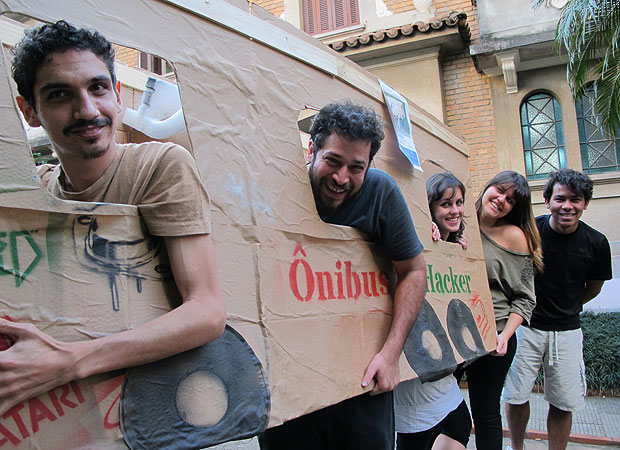
The ‘Hacker Bus’ in Brazil
http://carnegieeurope.eu/2016/04/21/non-western-ideas-for-democratic-renewal/ixcx
In Latin America, analysts’ attention has focused on the way that left-wing populist regimes have come to directly challenge Western, liberal democracy. But it is necessary to look beyond the well-worn debates over chavismo to see how interesting innovations to democracy are emerging in Latin America.
In recent years mass protests have been staged across Latin America—in Brazil, Venezuela, Mexico, and elsewhere. New movements have been set up by young people who seek to enhance political accountability and strengthen their capacity to participate in the democratic process beyond voting in elections. Anger over corruption is often a driver of the protests, but the major concern is usually the low quality of public services because it perpetuates socioeconomic inequality.
In Brazil in particular, the young reject traditional political structures, opting for alternative ways to make their voices heard. Civil society has led an increasing number of highly original initiatives. One example is Nossas Cidades (Our Cities), a nongovernmental organization (NGO) that creates digital platforms to make political engagement easier by helping citizens contact public officials responsible for specific issues, identifying others willing to work for similar causes, and pointing to politicians who have acted to protect their own vested interests.
Some NGOs are bringing together lawyers who provide free legal advice to those apprehended by the police during protests. Others denounce environmental degradation through graffiti art. Another example is the deployment of an app that tracks a congressman’s voting record, tax declarations, and campaign donors. And the organizers of Ônibus Hacker (Hacker Bus), which advocates public transparency and open data, teach schoolchildren how to write legislative projects and send them to lawmakers.
Through such initiatives, activists are not so much seeking a wholesale change to the nature of the democratic regime as more effective dialogue with the government. They are driven by the hope that such civic activism will offer better ways to reduce the inequality in society.
A certain paradox remains: in Brazil’s most recent presidential elections, the country’s established parties were victorious, while alternatives—such as Marina Silva’s “third way”—foundered. Instead, change is occurring through new types of civil society organizations. These new forms may not represent a completely different model of democracy, but they offer useful lessons to both Western and non-Western democracies around the world.
Read also:
The Fuel for Brazil’s Protests: Anger at the Entire Political Elite
Protests, young activists and political engagement in Brazil: Alive and kicking
Book review: “The End of Power” by Moisés Naím
Foto credit: Laura Brentano/G1








